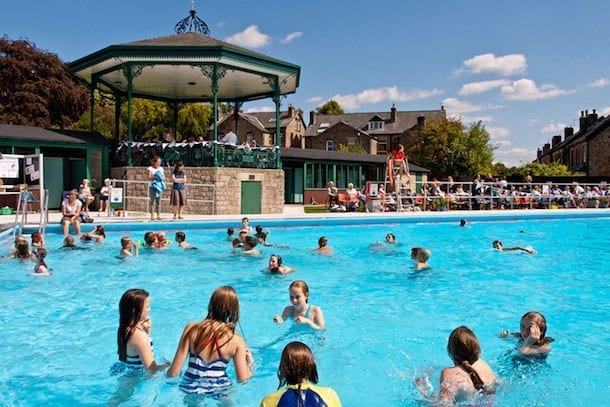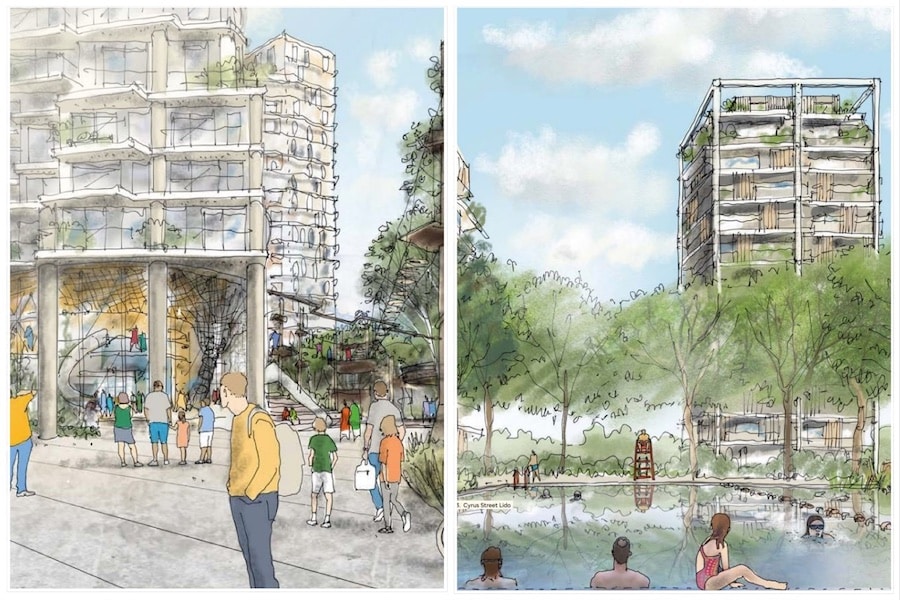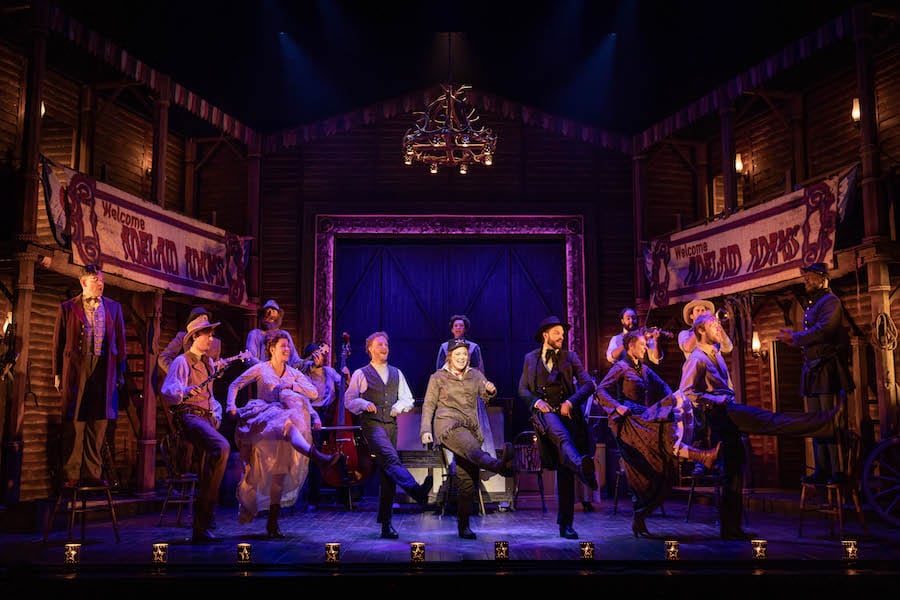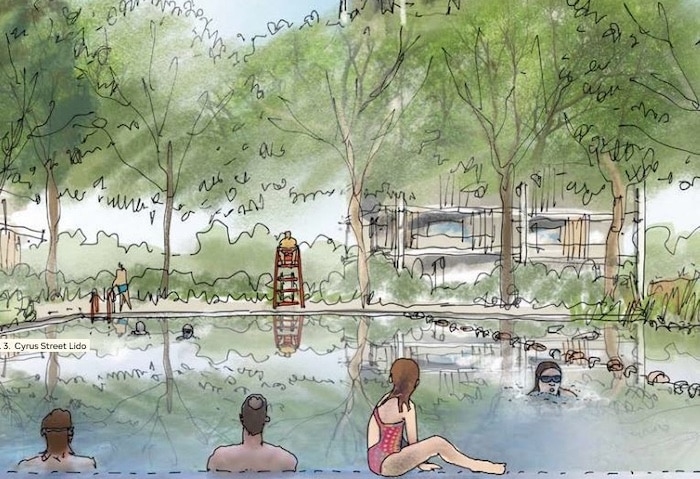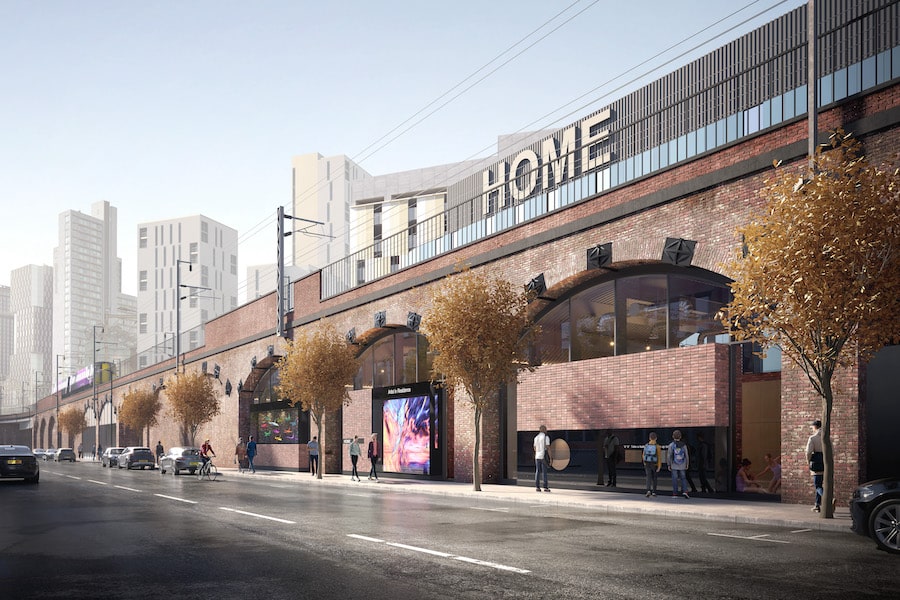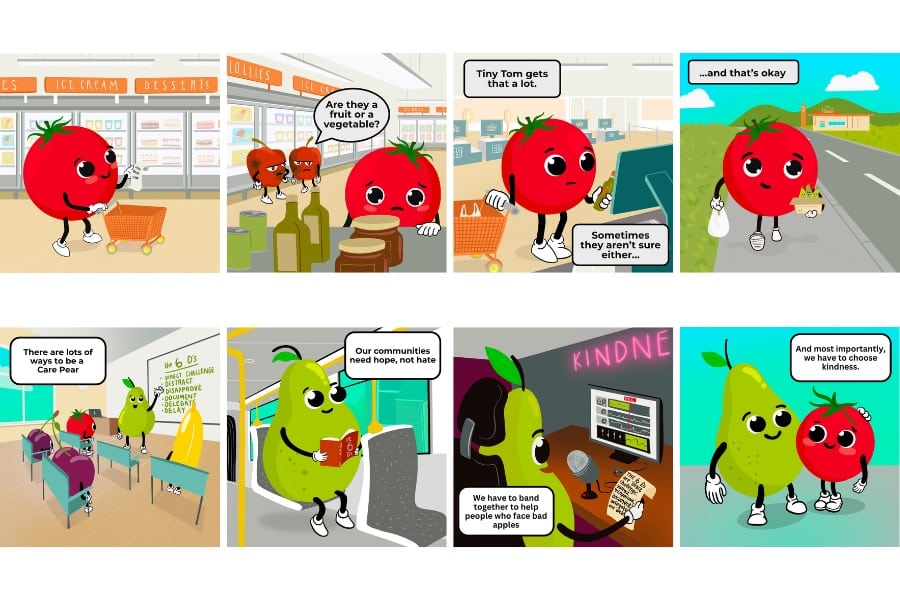Regeneration masterplan revealed for town ‘dripping with heritage’
- Written by Nick Statham
- Last updated 2 years ago
- Community, Rochdale
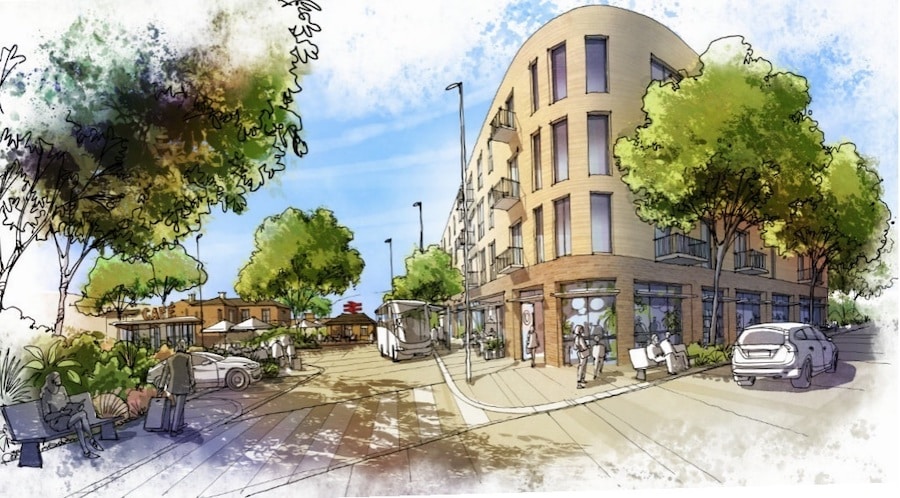
Take Town House – the 18th-century abode of visionary Rochdale MP Gordon Harvey – or Harehill Park, a Victorian idyll where visitors will find the grave of a pet monkey that belonged to the first owners of the house there.
And of course, there is Hollingworth Lake – hailed as the ‘jewel in the crown’ of the entire borough, it was created in the 19th century as the main water source for the Rochdale Canal.
But what of its future?
The picturesque town – sat beneath rolling hills and wild moorland at the edge of the Pennines – may seem remote but Manchester city centre is only a 15-minute train journey away.
That rapid connection has seen its population begin to change – with young commuters making their way north, pulled in by an abundance of independent shops, bars and restaurants.
So it is perhaps no surprise council bosses have developed a station area ‘masterplan’ focused on regenerating the area around this key ‘gateway’.
It sets out a vision for an ‘uplifted village centre attractive to residents and businesses’ with an improved station area that will ‘support development sensitive to the existing historic fabric, building on Littleborough’s unique identity’.
Or, as Coun John Blundell, the council’s regeneration chief puts it: “The place is dripping with heritage and the masterplan is really about developing these brownfield sites and drawing it out.”
But the plan has not emerged without controversy – getting off to a rocky start after businesses in Victoria Street were stunned to see their premises earmarked for demolition under the original draft.
Unpopular proposals to potentially close Hare Hill Road and narrow Church Street were also ditched.
The final version of the plan – redrawn following two bouts of consultation – will go before the full council for adoption later this month.
It includes a new station square and bus interchange as well as improvements to Hare Hill Street, Church Street and Victoria Street.
The railway arches would also be redeveloped into areas to create new business or community premises – such as restaurants, shops and workspaces – while the canalside area is earmarked for housing.
The master plan comes in three main parts…
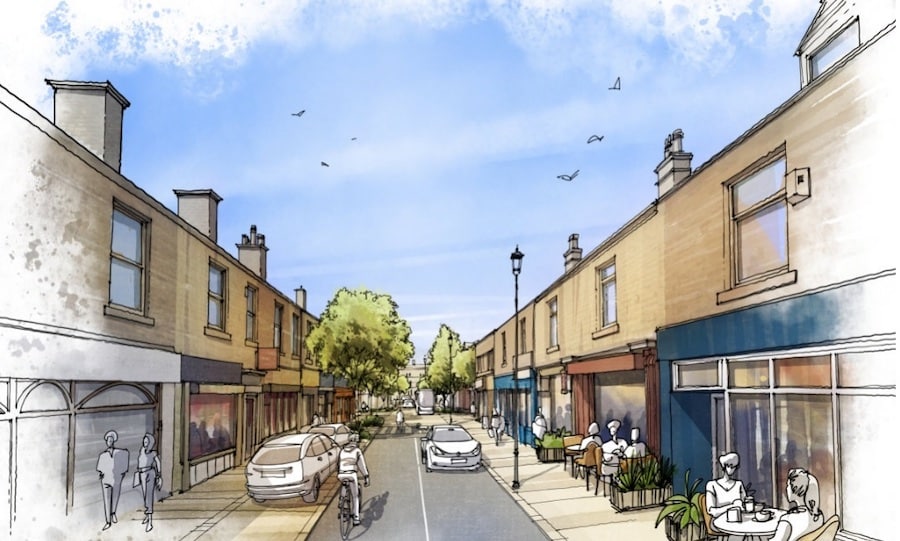
Hare Hill Road and Village Centre
This is the most contentious part of the plan, being home to the aforementioned Victoria Street business premises initially mooted for demolition.
Council chiefs are proposing new units here – or at least incorporate existing ones within a new facade – potentially with apartments over the top of them.
“If we could get the shop owners and the landowners to agree, we could have shop fronts along the bottom with apartments along the top in line with the church and you could have a car park around the back,” Coun Blundell told the Local Democracy Reporting Service.
“You speak to any business owner, they all want to open up in Littleborough but there are no premises, this is an excellent opportunity to expand the premises here.”
“If there were no shops there now, you would design it in a very different way. How do we retain these shops and get a new urban environment which is more commensurate with the built environment of Littleborough?”
The controversial proposals have led to some heated exchanges at council meetings over the last couple of years – particularly after the first draft was published.
Coun John Taylor, leader of the council’s Conservative group, recently called for it to be removed from the plan – although the Tories welcome many of the other proposals.
However recent promises from the council appear to have left owners somewhat – if not totally – reassured.
In line with these, the latest version of the master plan says that any redevelopment here would be subject to consultation with business owners and landowners.
Kevin Hooson, of Hooson and Stuttard Opticians, said the business was prepared to make alterations to match the council’s plans – but would not agree to an apartment above the premises.
“I don’t want to be CPO’d, [compulsorily purchased by the council] we don’t want to leave the village,” he said.
“The only way forward is for people to be reasonable with each other and discuss matters and try to find a little bit of common ground. But I refuse to be pushed out without any say in the matter.”
Coun Blundell says CPOs would only be used when matters have reached a complete impasse.
“The council can’t just CPO somebody, it’s not in its gift. It has to work with people to try and realise its vision. They will have input into what that vision is, it’s only when someone is being completely unreasonable that that’s the route we take.”
Further complicating matters is the council’s contentious decision to buy the United Reformed Church on Victoria Street – reportedly to be used as a new community hub.
While not technically part of the master plan, this sparked concerns it would be in direct competition with existing venues such as the Coach House and boxing club.
While they have been somewhat persuaded that it is better than allowing the church, a question mark remains over its future purpose.
“It’s just what their intentions are with it, that’s the only grey area,” John Butterworth, director at The Coach House told the LDRS after the meeting was discussed at a cabinet meeting.
However, Coun Blundell argues the church would provide a bigger space than anything else on offer in the village, so is ‘not necessarily going to compete as some people have said’.
“The United Reformed Church is a fantastic building but needs a bit of TLC. It’s prominent in the village centre and we want to protect the building,” he said.
“There are lots of interested groups in Littleborough that want a venue this type of size.”
Plans for this area include better pedestrian crossings and improvements to the environment, including planting and cycle parking. On-street parking provision would be ‘formalised’ but existing locations and numbers retained.
“Essentially we would improve the pavements at Church Street at the traffic lights. It’s quite a wide road, it doesn’t need to be this wide,” Coun Blundell added.
“People should not be using these roads as they do. This should be a place for people, not for cars, it should be open as a through route, but it should be an optional last resort, it should not be the preferred option.”
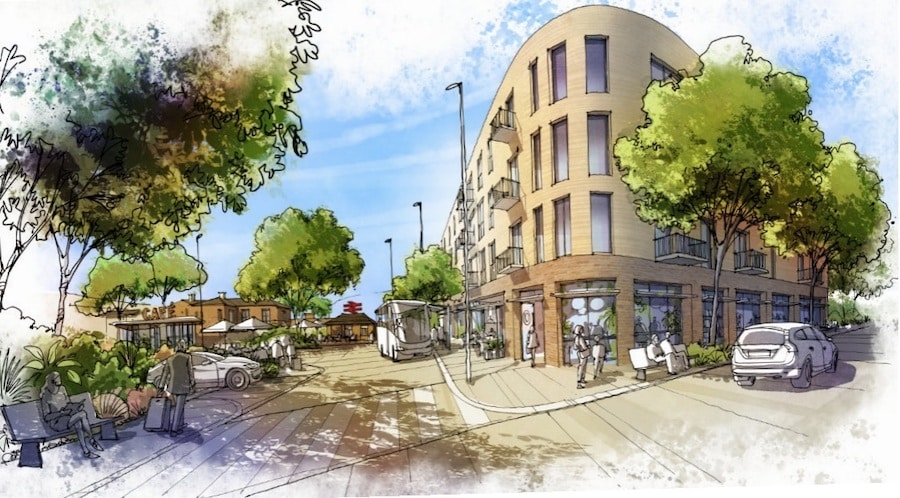
Station Square
A new station square creating a ‘pedestrian-friendly environment’ for those arriving on the train would be developed here, together with a new bus interchange.
There is also the possibility of the Co-op being relocated closer to the station, freeing up land for new homes.
The masterplan document says the redevelopment of the Co-op site would add to the ‘vibrancy and activity of the station arrival space’, providing ‘additional residential development opportunities’ on its doorstep.
But if this doesn’t go ahead bosses say commercial opportunities remain for the ‘under-utilised’ spaces around the station. These could lend themselves to a range of options, from convenience stores and coffee shops to shared workspaces.
Further proposals include new public toilets, retention repurposing of the old ticket hall, and using land behind the existing brick wall for a new coffee shop or small retail offering.
A new deck – or decks – would also be built above the existing parking area to increase capacity.
“People repeatedly say they want brownfield development, we are trying to find those brownfield sites and make them work,” Coun Blundell says.
“The principle is that this would be a square, rather than an interchange and there would be a facade that would open the back up for a housing development. Along with the vacant patch on Peel Street, that’s a lot of housing all on brownfield.”
Coun Blundell says plans to redevelop the Co-op are not ‘set in stone’ – but laments the fact the current store only uses around one-third of the site.
“It was built in a different day,” he says. “Now they would occupy a smaller footprint – more like you see in the city centre – but with ‘just in time’ deliveries rather than all that [storage area].
“All that land is massively under-utilised, but being right next to the station will support brownfield development along the railway.”
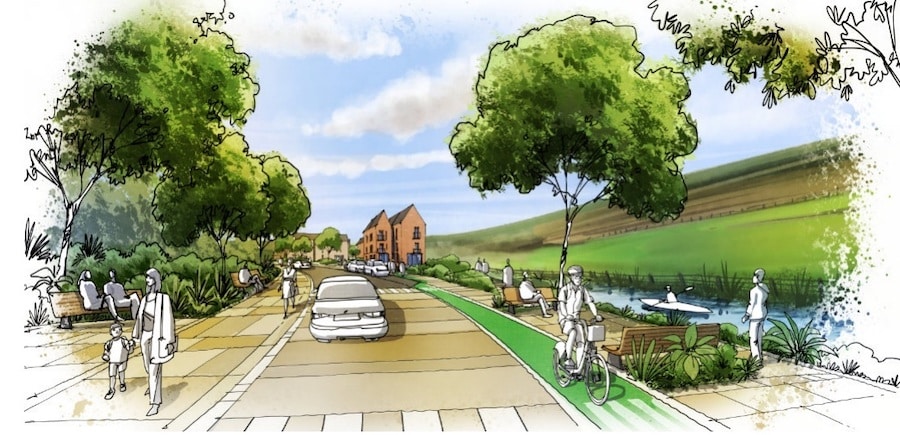
Canalside
This part of the masterplan is said to have been ‘designed around pedestrians and cyclists’.
Plans include refurbishing the railway arches to provide premises for business and community uses, such as new restaurants, shops and offices. Chiefs also want to repurpose the underutilised space around the viaduct area and enhance links through to the canal towpath and station.
Pick-up/drop-off parking would be provided on Canal Street to serve those using the station, while new, larger areas of green space would promote ‘an open and attractive gateway area’.
And a brownfield site near Canal Wharf – described by Coun Blundell as needing ‘a bit of TLC’, has also been earmarked for new housing.
The regeneration chief acknowledges the area is becoming gentrified – driven by the commuters lured by the quick train link from the Pennines countryside to Manchester city centre, or even Leeds.
But as house prices rise, what does that mean for people born and bred in the area that could find themselves being priced out?
“It’s starting to happen, it is gentrified, you can just tell by who moves into it and the houses with a skip in front of it,” said Coun Blundell.
“It’s just going to be incumbent on us to build the type of housing they are going to be able to afford.
“But you can’t build a wall around Littleborough and keep people out.”
After being approved by the cabinet on February 28, the master plan will go before the last full council meeting of the municipal year later this month.
The council has held online and in-person consultations over two phases and says the responses indicate ‘general support for the proposals’.
However, not everyone is happy about the prospect.
Littleborough Civic Trust – which has clashed with the council over several issues over recent years – claims the council has ‘not really been upfront with their actual intentions’
Chairman Ian Jackson said in a statement: “Some ‘so-called’ consultation has taken place, but in our view, not satisfactorily.
“A public meeting should be held with the audience allowed to participate in a Q&A session.
“This is something the trust has asked for on several occasions, to no avail. The council are keeping the public guessing with rumour and speculation, which can do no one any good. They will not sit down and say ‘this is what we intend to do’.
“Given the potential impact on the village centre, of which the ‘Places for Everyone’ intentions will also bring along huge consequences, then a far more detailed statement of intent should be produced by the council without further ado”
The Littleborough master plan will go before the full council for adoption on Wednesday, March 22. The meeting is to be held at Number One Riverside from 6 pm.
- This article was last updated 2 years ago.
- It was first published on 13 March 2023 and is subject to be updated from time to time. Please refresh or return to see the latest version.
Did we miss something? Let us know: [email protected]
Want to be the first to receive all the latest news stories, what’s on and events from the heart of Manchester? Sign up here.
Manchester is a successful city, but many people suffer. I Love Manchester helps raise awareness and funds to help improve the lives and prospects of people across Greater Manchester – and we can’t do it without your help. So please support us with what you can so we can continue to spread the love. Thank you in advance!
An email you’ll love. Subscribe to our newsletter to get the latest news stories delivered direct to your inbox.
Got a story worth sharing?
What’s the story? We are all ears when it comes to positive news and inspiring stories. You can send story ideas to [email protected]
While we can’t guarantee to publish everything, we will always consider any enquiry or idea that promotes:
- Independent new openings
- Human interest
- Not-for-profit organisations
- Community Interest Companies (CiCs) and projects
- Charities and charitable initiatives
- Affordability and offers saving people over 20%
For anything else, don’t hesitate to get in touch with us about advertorials (from £350+VAT) and advertising opportunities: [email protected]

Review: Animal Farm at Octagon Theatre ‘brings Orwell’s dystopian masterpiece to life’

“Sports belongs to everyone” Meet the charity on a mission to ensure sport is for all
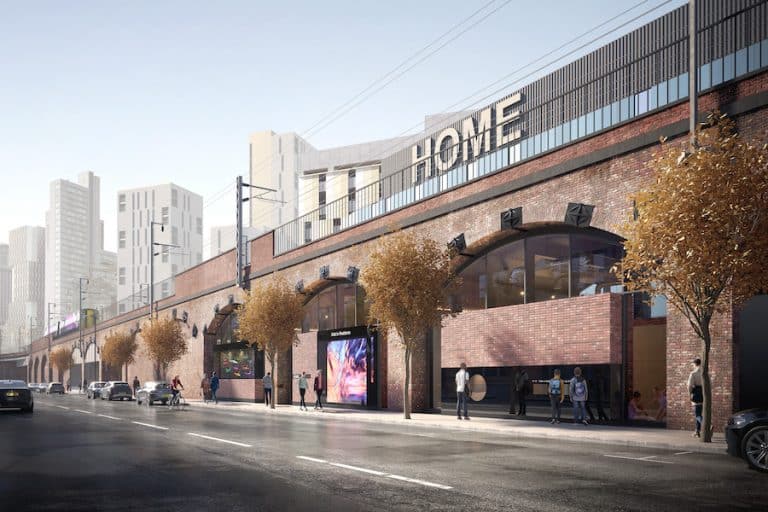
The game-changing, free-to-use space for artists and creatives opens

Manchester is a ‘city of sanctuary’ – but what does that mean?

“A spectacular showcase of storytelling” Manchester Film Festival reveals 2025 line up
